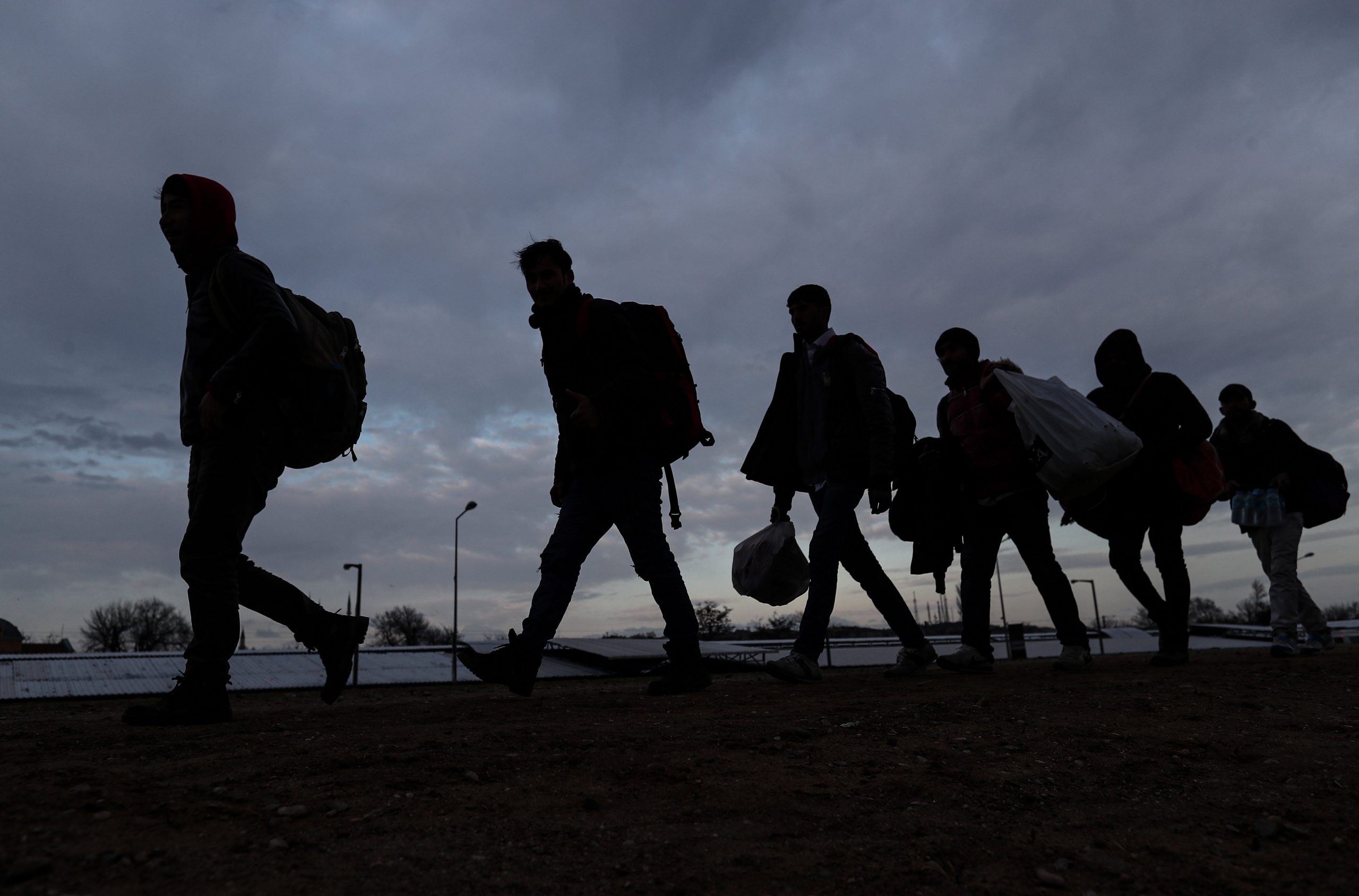
World-wide migration, the Hungarian government’s migratory policies, communication and border protection, were all on the menu in a public debate held on Tuesday. On behalf of the government, it was state secretary and political director of the Prime Minister, Balázs Orbán, who sat down with the leader of Menedék (Shelter) – Association for Migrants, András Kováts. In addition, economist Bryan Caplan, author of pro-migration book Open Borders: The Science and Ethics of Immigration, also joined in the conversation, although virtually.
Menedék leader Kováts immediately began the debate by confronting Orbán (who is only a namesake of the Prime Minister) with official immigration figures. Despite the government’s rhetoric, the number of foreigners applying for a work permit for the first time had increased eightfold over the past five years.
Kováts additionally said it was “particularly disgusting” that when tens of thousands of Hungarians lost their jobs due to the coronavirus pandemic, the number of non-EU foreign nationals working with a permit had risen from 82,000 to 87,000, most of them coming from Kazakhstan, Mongolia, Vietnam, Ukraine, or even the Philippines.

From left to right: state secy Orbán, moderator Szabolcs Vörös, Menedék leader Kováts and Caplan on the screen. Image by Tamás Kovács/MTI
In response, Balázs Orbán said that the number of foreigners employed in Hungary – around 230,000 people – is still the lowest in the EU, and that these people are all in Hungary legally. He believes that there is no social discourse on this because the political debate is not focused on them, but on themened hundreds of thousands of people who wanted to enter the country at the southern borders in 2015.
He also stressed the importance of the messages that transit and host countries send to countries where migrants usually come from. He noted that migration can be a political weapon too that could weaken affected countries. For this reason he believes Hungary must resist the EU.
In response to claims about the controversial tone and messages of the government communication, Orbán argued that “This is a clear and simplistic message, but it is necessary in order to influence social movements at a deep level, which is why the government cannot let go of this tone.”
“I accept all criticism that Hungarian public life and political publicity have become simplistic. Who is more responsible for this, the media, economic actors or politicians, is an interesting debate,” he added.
In a bid to sum up the government’s view on migration, Orbán said “Hungary is a fantastic place, we understand if you want to come here. If you want to come illegally we won’t let you in. If you want to come legally, we’ll decide if you can come.”
Orbán vs. Caplan
Caplan joined in for the second part of the discussion, which unlike the first part, focused instead on migration policies in theory.
Fact
The book from the professor of economics at George Mason University makes the case for unrestricted immigration, reportedly using a clear and conversational tone, exhaustive research, and vibrant illustrations. He argues that opening all borders could eliminate absolute poverty worldwide and usher in a booming worldwide economy- greatly benefitting humanity.
Such a statement, of course, belongs to the category of science fiction in Hungary, even if the current political situation is ignored, Orbán began the debate.
Caplan, however, reacted by saying that in 1980 it had similarly been ‘science fiction’ to think that communism would ever end in Hungary, yet it did. And in response to the argument that if someone really supports the total opening of the borders, why does he lock the door of his house when he gets home? He said that the question wasn’t about ownership, but about whether one can use one’s property as he wishes.
Caplan pointed out that Hungarians who move to other EU member states also give their host countries an economic advantage.
Orbán, however, said that a distinction should be made between legal and illegal migration. In connection with mass immigration, he cited the fall of the Roman Empire: after they had given up protecting their borders, it wasn’t the Age of Enlightenment to come but the Dark Ages.
“It’s paranoid to think that everyone is against us and wants to attack us,” said Caplan, who believes that the economic benefits of immigration can be in the thousands of billions of dollars a year, while the disadvantages are dwarfed.
The arrival of immigrants, promoting cheaper labor, pushes down wages and housing prices also tend to fall in those neighborhoods that become migrant neighborhoods, so local residents are not necessarily enthusiastic about migration, Balázs Orbán said, arguing that illegal immigrants are currently seeking economic opportunity, not fleeing persecution, and their mass admission doesn’t pay off economically; instead, they are a burden on the social welfare system.
He said migration is not something beneficial from the other end either: “Brain drain is not a positive phenomenon, as talented citizens leave their home countries to increase GDP elsewhere.”
Caplan said that immigrants finding a job would be no problem because “the laws of the free market work well.” He claimed that many people fear the liberalization of immigration because Eastern Europe still has strong socialist reflexes and patterns of thinking left over from the old days.
Related article
Ice Cream of the Year Is a New Modern Combination
The passion-caramel sorbet by Norbert Dobó, a confectioner from Balatonfüred’s Füredi Fagyizó, was named ice cream of the year, and he also won the silver medal with his vanilla with honeycomb ice cream. Both Dobó’s products are milk-based. The winning pairing, based on passion fruit, is layered with pecans, and the vanilla ice cream, which […]Continue reading
“This book is a provocation,” concluded Orbán, also pointing out that there are different immigration models, different countries, and therefore the problem is complex.
Menedék’s director meanwhile drew a parallel between the book and the government’s policies, arguing the government’s position stipulating that immigration can only be bad is also an extreme position on the other end of the scale.
featured image illustration via MTI/EPA/Sedat Suna


